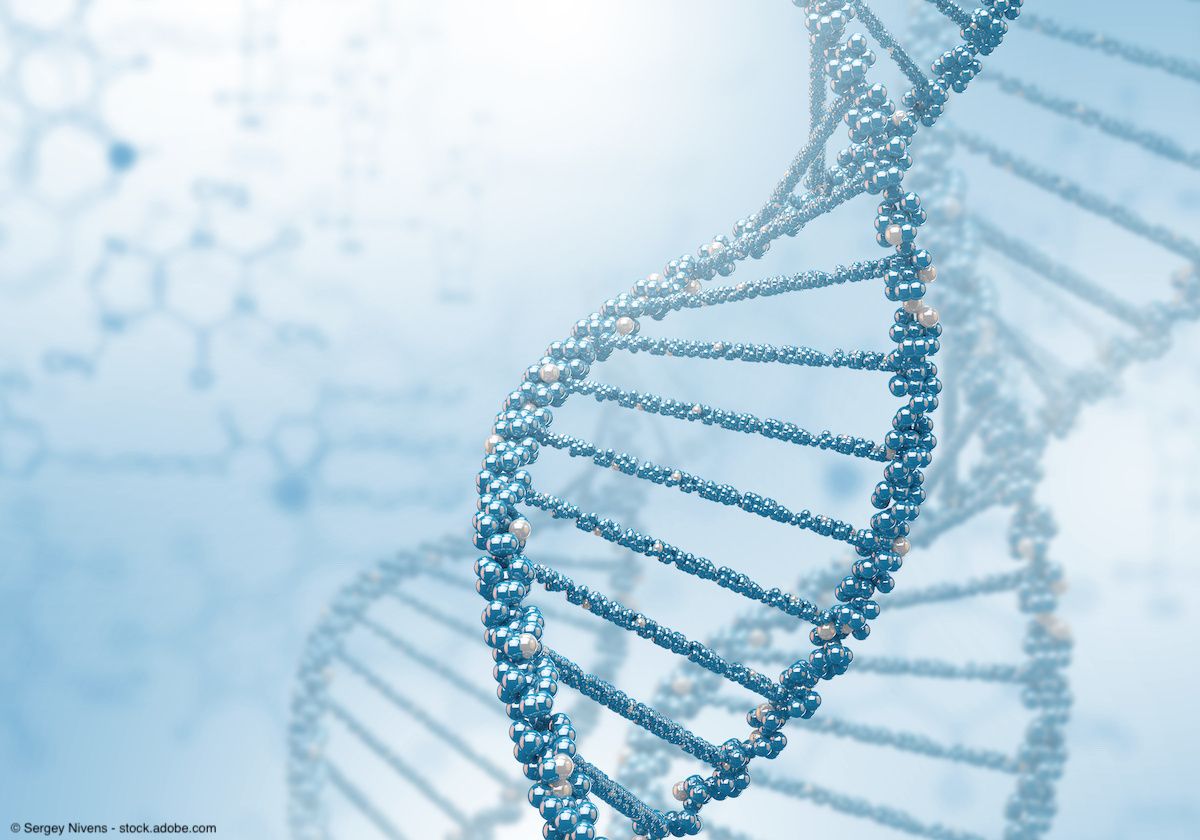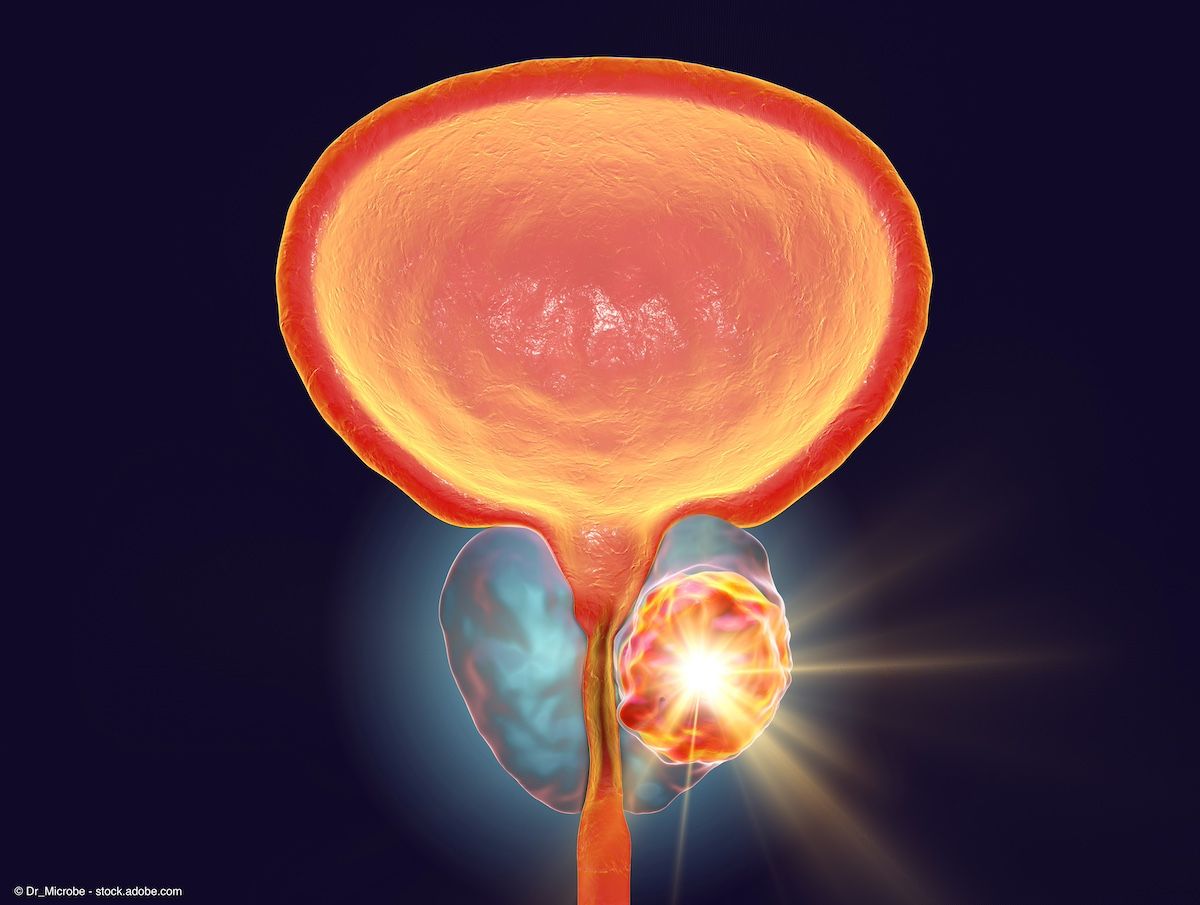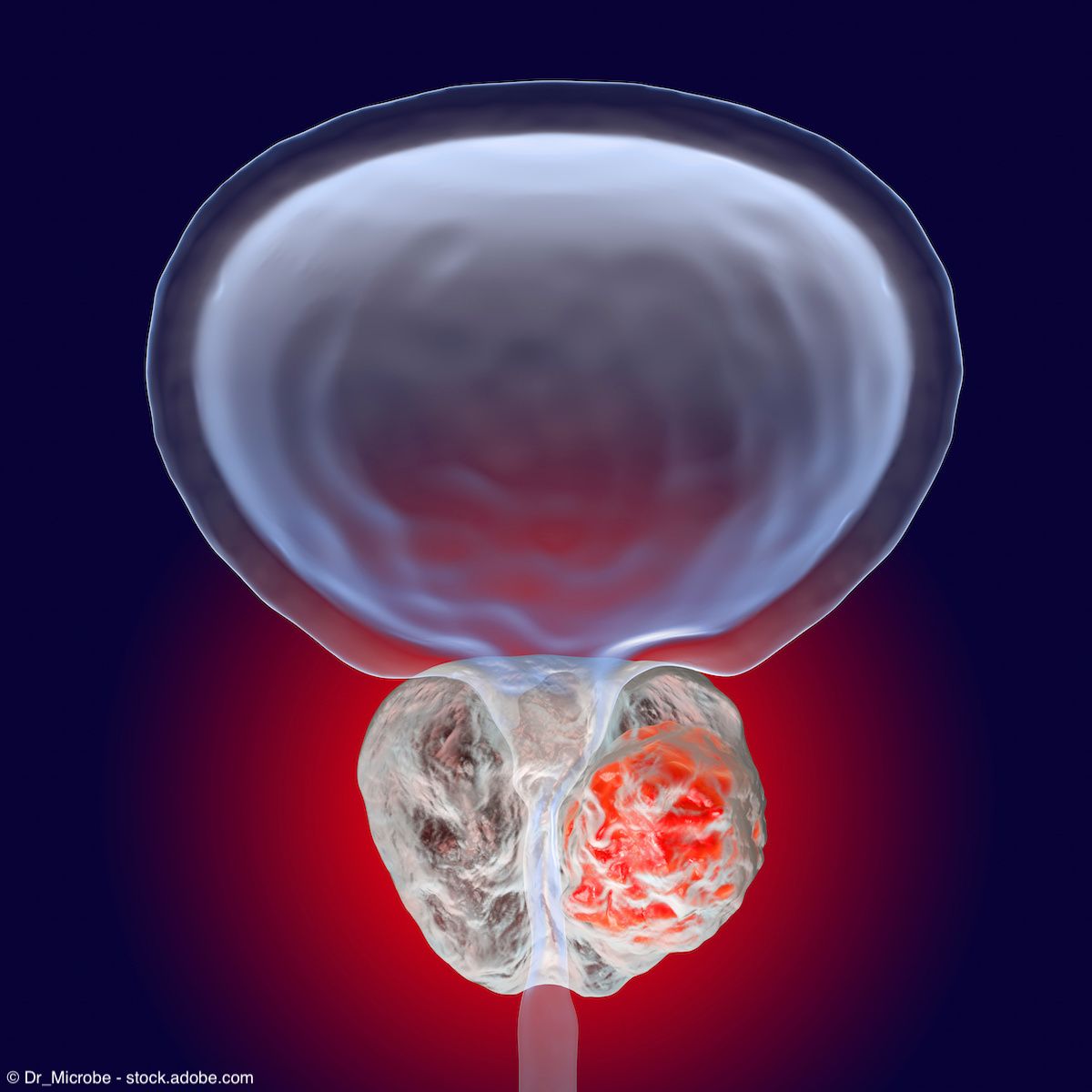News
Article
HSD3B1 CC genotype associated with inferior outcomes in prostate cancer
Author(s):
"Indeed, HSD3B1 appears to be the most common monogenic driver of prostate cancer mortality,” says Nima Sharifi, MD.
Data from Million Veteran Program study show that the HSD3B1 adrenal-permissive homozygous (CC) genotype (1245C) is associated with inferior clinical outcomes among men with prostate cancer compared with the adrenal-restrictive heterozygous (AC) and homozygous (AA) genotypes.1
The findings from the current study add on to previous data from 2013 showing that the HSD3B1 genotype stimulates local production of active androgens in prostate cancer.

Overall, patients who harbored 1245C in the HSD3B1 gene had a 5-year incidence of prostate cancer mortality of 4.0%, vs 2.1% among patients with the AC genotype and 1.9% among patients with the AA genotype (P = .02).
Further, the HSD3B1 CC genotype was associated with worse prostate cancer-specific mortality (PCSM) from time of metastases among the 619 patients who developed metastatic disease at any time (HR, 2.48; 95% CI, 1.34-4.58; P = .004). Specifically, patients with the CC genotype demonstrated a 5-year cumulative incidence of PCSM of 36%, compared with 17.9% among patients with the AC genotype and 18.5% among patients with the AA genotype (P = .01).
The cumulative incidence of PCSM was also higher for those with the CC genotype among the subset of patients who received a diagnosis of non-metastatic prostate cancer at diagnosis (P = .04). The cumulative incidence of PCSM was similar across genotypes in patients who presented with metastatic disease at diagnosis.
The findings from the current study add on to previous data from 2013 showing that the HSD3B1 genotype stimulates local production of active androgens in prostate cancer.2 Subsequent data has shown that patients who have the CC genotype in the HSD3B1 gene are more likely to rapidly develop castrate-resistant disease and have worse outcomes, according to a news release on the findings.3 Further, 1245C in the HSD3B1 gene has been shown to promote resistance to androgen deprivation therapy.
The investigators of the current study sought to compare mortality outcomes by HSD3B1 genetic status among veterans with prostate cancer.
“This is a large, ethnically diverse study of prostate cancer patients. Now we can say with much greater confidence that this finding is clinically meaningful, as HSD3B1 status can inform prognosis and response to hormone therapy. Indeed, HSD3B1 appears to be the most common monogenic driver of prostate cancer mortality,” said Nima Sharifi, MD, in the news release on the study.3 Sharifi is the senior author of the 2013 study and recently wrote a commentary on the current findings from the Million Veterans project.4 Sharifi isalso amedical oncologist and the scientific director of the Desai Sethi Urology Institute at the University of Miami in Florida.
Overall, the current study included 5287 patients who were enrolled in the Million Veteran Program within the Veterans Health Administration system between 2011 and 2023. Of those, 402 (7.6%) patients harbored the CC genotype, 1970 (37.3%) harbored the AC genotype, and 2915 (55.1%) harbored the AA genotype. Further, 1567 (29.6%) patients self-identified as Black, and 3387 (64.1%) self-identified as White.
Median follow-up among patients was 4.4 years. The primary end point for the study was PCSM. Secondary outcome measures included incidence of metastases and PCSM in predefined subgroups.
Sharifi added in the news release,3 “The new paper’s authors also found that detection of this gene in men who had non-metastatic prostate cancer puts them at elevated risk for dying from the disease. And, because it’s a gene that confers resistance to hormonal therapy, it may help direct therapies very early on. Obviously, a lot more work needs to be done, but I think the data that’s coming out is indeed powerful.”
References
1. McKay RR, Nelson TJ, Pagadala MS, et al. Adrenal-permissive germline HSD3B1 allele and prostate cancer outcomes. JAMA Netw Open. 2024;7(3):e242976. doi:10.1001/jamanetworkopen.2024.2976
2. Chang KH, Li R, Kuri B, et al. A gain-of-function mutation in DHT synthesis in castration-resistant prostate cancer. Cell. 2013;154(5):1074-1084. doi:10.1016/j.cell.2013.07.029
3. Dr. Nima Sharifi pens JAMA commentary on prostate cancer variant his team identified. News release. University of Miami Health System, Miller School of Medicine. March 21, 2024. Accessed March 22, 2024. https://www.newswise.com/articles/view/808670/?sc=mwhr&xy=10016681
4. Schiffer L, Sharifi N. Adrenal-Permissive HSD3B1 Genotype—An Invisible Stimulator of Prostate Cancer Mortality. JAMA Netw Open. 2024;7(3):e243402. doi:10.1001/jamanetworkopen.2024.3402
Newsletter
Stay current with the latest urology news and practice-changing insights — sign up now for the essential updates every urologist needs.








